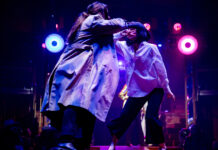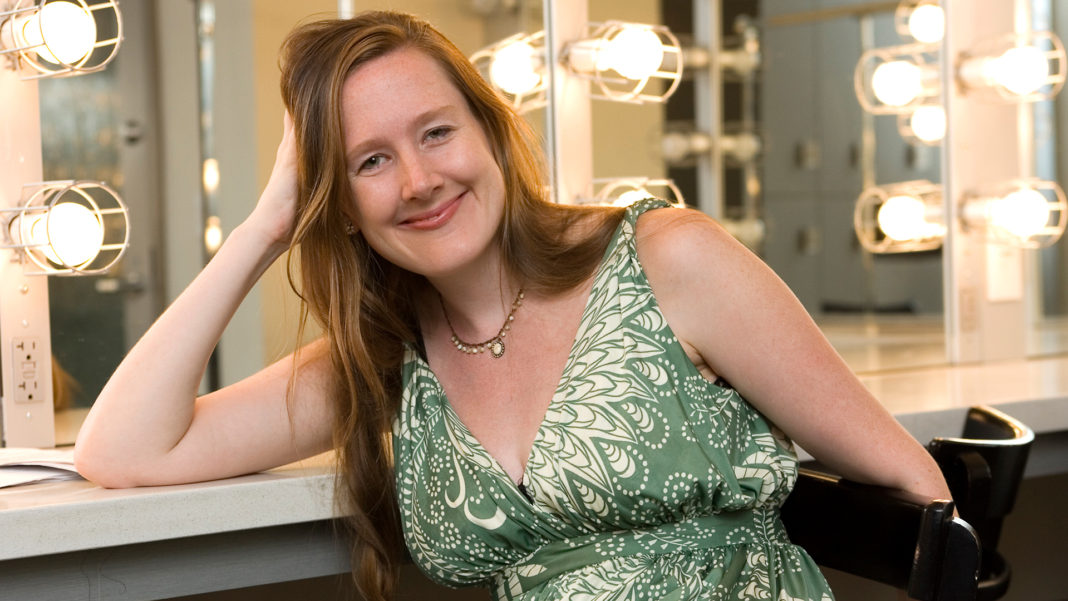In 2008 Pulitzer Prize finalist playwright Sarah Ruhl told The New Yorker, “everyone has a horrible opera inside him.” Little did she know that she, too, had an opera inside her. Composer Matthew Aucoin reached out to André Bishop, the Artistic Director of Lincoln Center, and told him he wanted to do an opera about Orpheus. Bishop suggested he talk to Ruhl because she had written the play Eurydice, which looks at the story of Orpheus from the point-of-view of the woman he loses on his wedding day and goes in search of in the underworld.
Last weekend Eurydice had its world premiere at the Dorothy Chandler Pavilion. The LA Opera and The Metropolitan Opera have teamed up for this project. Eurydice will be performed during the next Metropolitan Opera season.
In addition to Eurydice, Ruhl is the writer of such plays as In the Next Room, or the vibrator play (Tony nominee for Best Play, Pulitzer finalist), The Clean House (also a Pulitzer finalist), Dead Man’s Cell Phone and she has 44 Poems For You about to be published.
When I spoke by phone with Ruhl, I asked her about her collaboration with Aucoin, finding the opera within her and the Ovid text that started it all. Here are edited excerpts of that conversation.
When you told The New Yorker you thought everyone had an opera in them, did you also think you had an opera inside you?
I guess I suppose I though there was an opera inside everyone so I included myself in that equation. I never anticipated I’d be sitting across from a soprano singing beautifully into my ear.
Why has this myth of Orpheus and Eurydice inspired so many people in the opera world?
It’s a mystery you can’t wrap your head around. Everyone keeps wanting to penetrate the mystery and add their own fantasies to the mystery. Here was a woman who died twice and you don’t know anything about her or what the cost is to her. Why does the look back cause such irreparable damage? Why is complete faith demanded in love? It’s fascinating to me. Now as a mother, doing things like snorkeling with my children and looking back, what’s so wrong with looking back?
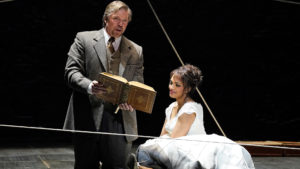
When I spoke to Matt a couple years ago, he told me your father passed away when you were quite young. How does your play, and now this opera, allow you to address your relationship with him?
My father was diagnosed with cancer when I was 18 and he died when I was 20. When I followed Eurydice to the underworld, it made sense that she would met her father there. I wrote [the play] in many ways to have a conversation with him. It’s a funny thing about grief. I had to see the play so many times, it was like a funeral for my father. With each repetition I let go more and more of him. Now 20 years later, there’s something about hearing it sung. Music is such a direct route to the emotions that there are parts of the opera that make me cry again. I thought I was over crying this particular tale. Somehow the voices do that. I feel like grief is like the clown car, when you have more than one loss, all those loses are in that car. One clown comes out and somehow there are ten more hiding in the car.
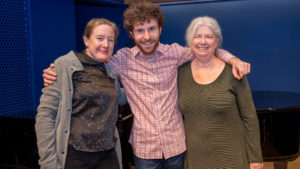
As a playwright who carefully considers the words you choose and the rhythm of those words, what are the challenges in adapting those words and rhythms to suit the music Matt has written?
The wonderful thing is Matt wrote the music to accommodate the words. He found rhythms for American speech patterns that I think are extraordinary. He could find the humor by finding certain rhythms. There were some changes of word order and changes of words to accommodate the singability, but by and large it didn’t feel like violence to the original.
You are one of several playwrights whose plays are being adapted for opera. The Lynn Nottage play Intimate Apparel is opening as an opera later this year. What does opera offer you as a form of expression that is different than what your plays can offer on their own?
The presence of those glorious voices does a completely different thing. I don’t even know how to articulate it because it is beyond language. It vaults the language into another realm and in some ways reduces the need for acting because the meter is scored, the emotion is scored. I see why writers, once you have music like that in your play, it’s hard to go back to having it bare because it is so deeply pleasurable and moving.
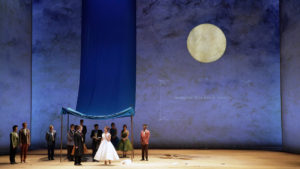
A recent issue of Opera News talked about how librettists get short-changed in opera because most operas are referred to by the composers who wrote the score. What do you think has to happen so librettists can be equally recognized for the contributions made to a given opera?
I understand truly why the composer is so revered because it really is a composer’s realm. I do also think that without the arc of a really good structure or the moment-to-moment sense of events and the language, operas can fall flat. Obviously the libretto is deeply important. There being more and more new operas, people will naturally come to remember the librettists.
In Ovid’s writing of this original story he said, “Eurydice, dying now a second time, uttered no complaint against her husband. What was there to complain of but that she had been loved?” I’m assuming you don’t think being loved is enough.
No. [She lets out an enormous laugh.] I don’t think what we normally think of as love is always love. It is precisely that quote that turns a woman’s stomach and makes you go we need the woman’s perspective. This woman cannot be just a dead silent shade that goes without complaint to her sad fate. There has to be more life in her mind than that. I think there are so many different kinds of love. I think we need more words for love and more words to describe the different varieties of love.
Eurydice continues at the Dorothy Chandler Pavilion through February 23rd.
Main photo: Sarah Ruhl/All images courtesy of Los Angeles Opera





